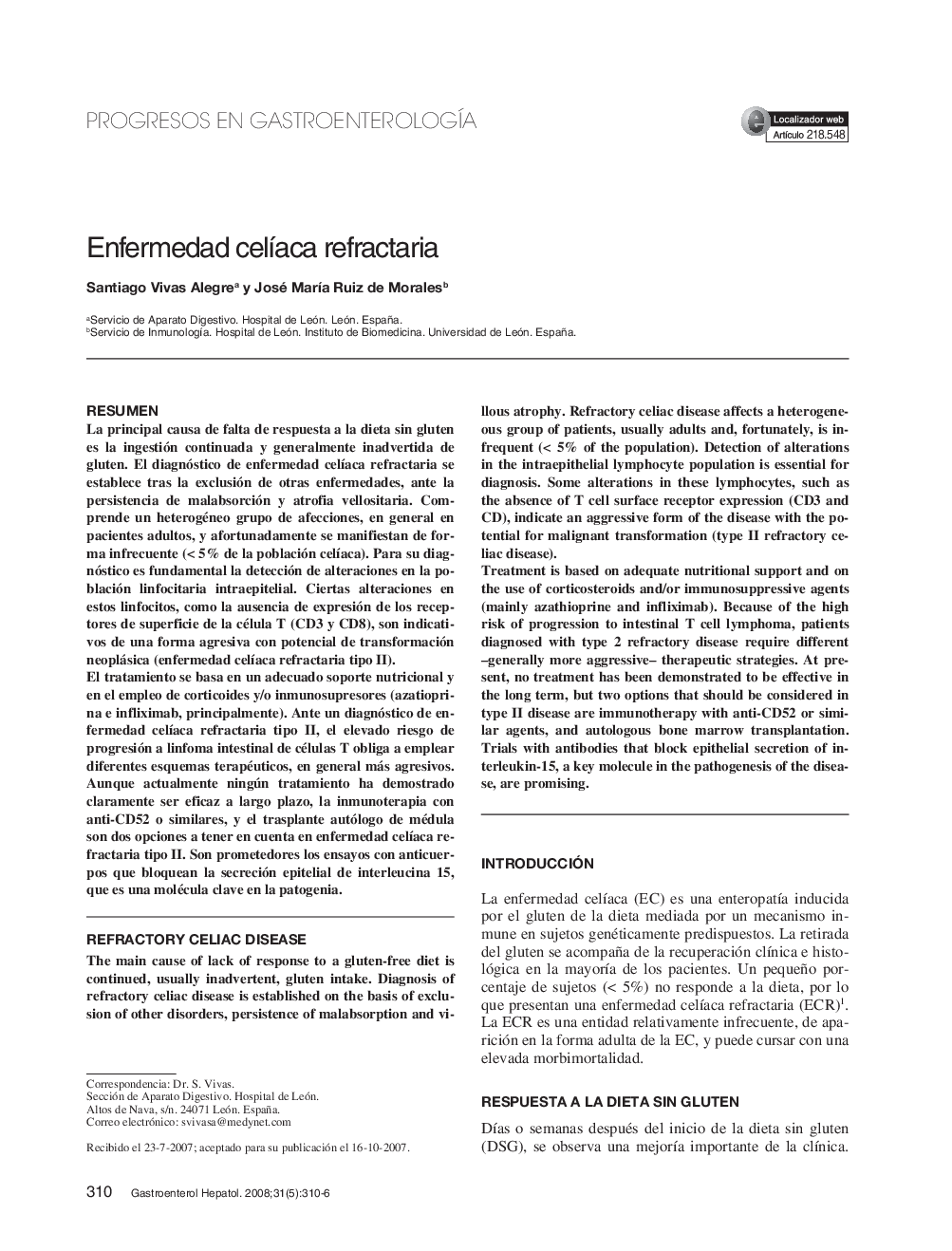| Article ID | Journal | Published Year | Pages | File Type |
|---|---|---|---|---|
| 3289156 | Gastroenterología y Hepatología | 2008 | 7 Pages |
Abstract
Treatment is based on adequate nutritional support and on the use of corticosteroids and/or immunosuppressive agents (mainly azathioprine and infliximab). Because of the high risk of progression to intestinal T cell lymphoma, patients diagnosed with type 2 refractory disease require different -generally more aggressive- therapeutic strategies. At present, no treatment has been demonstrated to be effective in the long term, but two options that should be considered in type II disease are immunotherapy with anti-CD52 or similar agents, and autologous bone marrow transplantation. Trials with antibodies that block epithelial secretion of interleukin-15, a key molecule in the pathogenesis of the disease, are promising.
Related Topics
Health Sciences
Medicine and Dentistry
Gastroenterology
Authors
Santiago Vivas Alegre, José MarÃa Ruiz de Morales,
